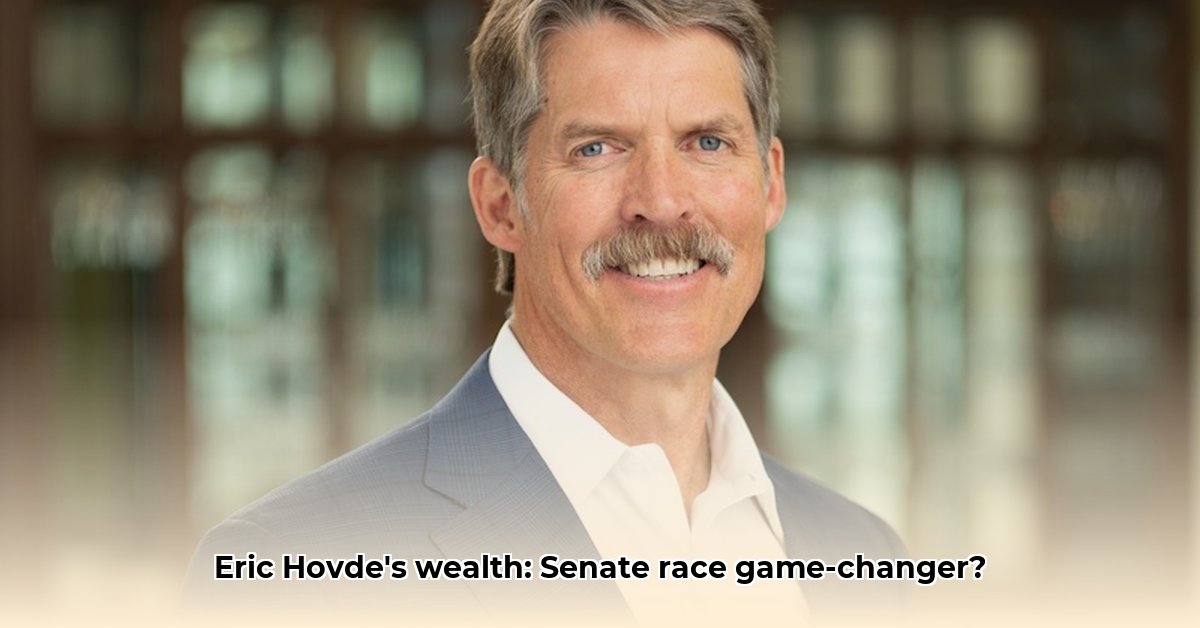
A Deep Dive into Eric Hovde's Finances and Their Impact on the Wisconsin Senate Race
Assessing Eric Hovde's net worth is proving to be a complex undertaking. While estimates range dramatically, from $67 million to a staggering $552 million, the lack of complete transparency in financial disclosures leaves a significant gap in the public's understanding. This uncertainty fundamentally shapes the narrative surrounding his Wisconsin Senate campaign.
The Sources of Hovde's Wealth
Hovde's vast wealth stems from a diverse portfolio of business ventures. His investment firm, Hovde Capital Advisors, plays a central role. His significant holdings in Sunwest Bank and Hovde Properties also contribute heavily to his overall net worth. While the exact breakdown remains elusive due to reporting limitations, the sheer scale of his assets is undeniable and warrants careful examination. The question becomes, how might this extensive wealth affect his political decisions and his ability to represent the interests of Wisconsin's constituents?
Potential Conflicts of Interest: Navigating Financial Transparency
Hovde’s substantial wealth presents a significant potential for conflicts of interest. His extensive business holdings could easily intersect with the legislative decisions he would make as a Senator. The STOCK Act (Stop Trading on Congressional Knowledge Act) strives to promote transparency and prevent such conflicts, but the lack of precise details concerning the valuation of Hovde’s assets presents a significant challenge. How significant a factor will this lack of clarity prove to be? Only time will tell; however, the potential for conflicts of interest remains a central concern for voters.
Agricultural Policy: A Vital Consideration
Given Wisconsin's robust agricultural sector, Hovde's stance on agricultural policy is a critical aspect of his candidacy. However, his business background, while impressive, doesn't automatically translate into a deep understanding of the practical challenges facing Wisconsin farmers. This disparity creates a potent point of contention in the campaign. Does his financial success equip him to effectively represent the interests and needs of Wisconsin's farmers? This remains a crucial question.
Campaign Financing: The Power of Self-Funding
Hovde's personal wealth provides an undeniable advantage in campaign financing. By largely self-funding his campaign, he reduces reliance on traditional political donations, potentially enhancing his independence from special interest groups. While this may appear to offer increased autonomy, it conversely raises concerns about accountability and potential influences. Does this financial independence truly serve the public interest, or does it present an inherent conflict of potential or perceived interest?
Analyzing the Situation: A Balanced Perspective
To effectively evaluate this complex situation, it's vital to consider both the potential benefits and drawbacks of Hovde's financial standing:
| Potential Advantages | Potential Disadvantages |
|---|---|
| Significant campaign resources | Substantial potential for conflicts of interest |
| Extensive business experience | Lack of detailed financial transparency |
| Reduced reliance on traditional donors | Perceived disconnect from ordinary citizens |
| Ability to pursue independent policy positions | Questionable depth of agricultural policy understanding |
Conclusion: The Unfinished Puzzle
The central challenge in evaluating Eric Hovde's candidacy lies in the significant uncertainty surrounding his net worth and the implications of his extensive financial holdings. While his wealth represents a potent force in his campaign, the lack of complete financial disclosure creates ambiguity and raises valid concerns regarding potential conflicts of interest. Voters are left to weigh these uncertainties against his policy positions and broader qualifications to make an informed decision come election day. The ongoing discussion surrounding his financial status ensures that this will remain a central element of the election narrative.